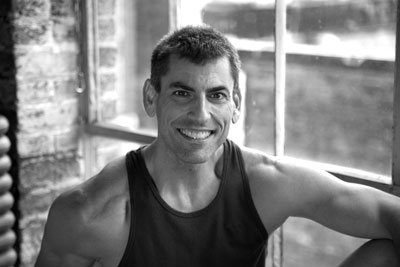
Why Marathons Matter

By Jeff Horowitz
March 2012
In 2010, over 507,000 runners crossed the finish line in 625 marathons in the U.S., according to the trade association Running USA. As impressive as these totals are, however, their significance pales in comparison to the importance of individual races, held against all odds, in climates of fear and loss.
It's been over a decade since black smoke hung on the DC horizon over the Pentagon. Even for those of us who were here and experienced the confusion, terror, and anger that was provoked by the events of 9/11, it's hard to really articulate the fear that was felt not just in DC, but across the country. People were afraid to fly again, or to gather in large crowds. For the Marine Corps Marathon, scheduled to be run the following month, it was a challenge of epic proportions.
The first question that crossed most people's minds was whether the race would still go on, followed quickly by the second question -- if the Marine Corps went ahead and held the race, would any one show up?
Race day came, and the answer to both questions was a resounding "Yes." For those who participated, it was one of the most emotional days of their lives. When the last finisher's medal was draped around the last participant's neck, many of us felt that we had witnessed more than a race; we had witnessed a rebirth.
A similar challenge faced the organizers and participants of the November 2006 Beirut Marathon. Launched in the aftermath of a devastating war with Israel, the race coincided with a period of intense political turmoil, as assassinations and street protests kept the city tottering on the brink of chaos. The killing of a young government official just five days before the race threatened to derail the event. Lebanon then went into three days of national mourning, as thousands of people massed in downtown Beirut to grieve and to demand peace.
As recounted in the film For The Love Of Lebanon, the decision by the Beirut Marathon Association go ahead with their race, was a declaration of their faith not only in the resiliency of the Lebanese people, but in the marathon as a vehicle for promoting peace and unity. But then, just three days before the rescheduled race start, opposition party Hezbollah called for a demonstration in the central square to demand the ouster of the existing government. This seemed to be the preverbal straw that broke the camel's back, as the race staff seemed to waver in their resolve. As race packets sat unclaimed and the expo resembled a ghost-town, the race staff seemed to be preparing for the worst. Instead, race morning saw the arrival of over 20,000 competitors, lined up for the marathon, 5K and 10K.
Throughout the film, the runners and citizens referred again and again to the race's tagline - "For the Love of Lebanon" - and declared their determination to unite for peace, for progress, for love, and for hope, by making race day a reality.
This is not a film about politics, war, or history. In a way, despite its title, it's not even about Lebanon. It's about the power of an idea - that running can bring people together in a way that perhaps no other activity can; that it can heal not just a body, but a community, a city, and perhaps a nation. As one staffer put it, quoting Nelson Mandela, sports can go where politics could not.
This, then, is the real meaning of the marathon. Throw away ancient stories about Phidippides; they've only been collecting dust where they lay. Forget, too, stories of personal perseverance and courage by those who endure. These stories inspire, but they are still only about the individual. Instead, think of the broader meaning of the marathon as a civilizing force, a declaration of hope for the progress of humankind. In war-torn regions around in the world, in nations emerging from civil unrest, and in cities struggling with the aftermath of terror, marathons emerge like wildflowers on a charred landscape. It's as if we share a common belief that if we can manage to come together to run, there is hope for the future. After all, how bad could a place be if they can host a race?
"For the Love of Lebanon" doesn't necessarily make me want to rush over to Beirut to run, and I would never want to relive those days following the events of 9/11. But I am glad that there is such a thing as a marathon, and that there are people brave and daring enough to host one and run when we need it the most.
Marathon Training
PVTC Track Series
Mary's Custom Quilts
Seashore Striders Summer 2001 Schedule
Joints In Motion
Team Diabetes
Fredericksburg Grand Prix
TrackCoach.com
Running Enclave
DC Fit
Fleet Feet - DC
Fleet Feet - VA&MD